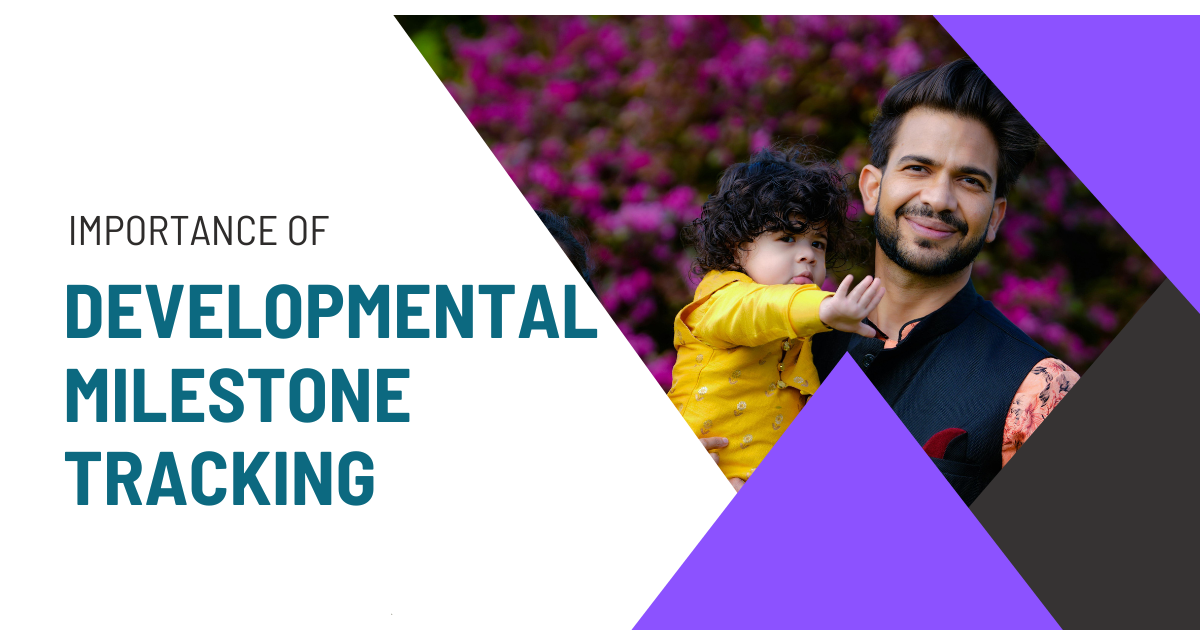Every parent eagerly waits for the day their baby smiles for the first time, takes their first step, or says their first word. These moments are not just heartwarming—they are important indicators of your child’s growth. Understanding why developmental milestone tracking is important for babies can help parents ensure their little ones are growing at a healthy pace and address any concerns early.
Simplify parenting with our app.
Click on This Link

What Are Developmental Milestones?
Developmental milestones are skills or abilities most children achieve by a certain age. They are usually grouped into four main categories:
- Physical (Motor Skills) – Sitting up, crawling, walking.
- Cognitive – Recognizing objects, problem-solving.
- Language and Communication – Saying words, understanding instructions.
- Social and Emotional – Smiling, responding to familiar people.
For example, in India, most babies start crawling between 7 and 10 months, but cultural practices such as using a ghodiyu (traditional baby cradle) or encouraging floor play can influence when these milestones are reached.
Why Developmental Milestone Tracking is Important for Babies?
Development milestone tracking is important for babies as it helps to know whether everything is proper or not in your children. Here are the reasons why development milestone tracking is important:
1. Early Detection of Delays
Tracking helps identify delays in motor, language, or social skills early. For instance, if a one-year-old in Delhi is not making any babbling sounds, a pediatrician might recommend a hearing check-up.
2. Timely Medical Intervention
If delays are spotted, early intervention can make a huge difference. Many Indian cities now have child development clinics that offer physiotherapy, speech therapy, and occupational therapy for children who need extra support.
3. Guidance for Parents
Tracking gives parents a clear picture of what skills to encourage next. For example, if your 8-month-old in Bengaluru is pulling to stand, you can ensure safe furniture arrangements to help them practice walking.
4. Understanding Cultural and Environmental Factors
In rural India, babies often spend more time outdoors and may develop gross motor skills faster due to open space and free movement. On the other hand, urban settings might encourage earlier exposure to books and toys, boosting language and cognitive skills.
5. Strengthening the Parent–Child Bond
When you track milestones, you naturally spend more time observing, playing, and interacting with your child—strengthening emotional connections and trust.
How to Track Developmental Milestones in India?
Tracking development milestones is very crucial for checking the growth of children. Here are the steps on how to track developmental milestones:
- Use a Baby Growth App – Parenting apps help Indian parents track vaccinations, milestones, and health records in one place.
- Maintain a Baby Diary – Note down dates of first words, steps, and new skills.
- Consult Your Pediatrician – Regular check-ups at 3, 6, 9, and 12 months help track growth.
- Refer to IAP (Indian Academy of Pediatrics) Guidelines – These give age-specific milestones for Indian children.
How Can Kiddoklinik Help?
Knowing why developmental milestone tracking is important for babies can help Indian parents give their children the best start in life. Every baby develops at their own pace, but regular tracking ensures you can celebrate achievements and address concerns quickly. Remember, tracking is about support, not pressure.
Tracking developmental milestones becomes crucial when it comes to parenting. Our app provides all the necessary information. Download KidsCur app for more information!
FAQs
Q 1: Is it normal for my baby to achieve milestones later than other kids?
Yes, small variations are normal. Consult a pediatrician if the delay is significant.
Q 2: How often should I track milestones?
Monthly tracking is ideal during the first year.
Q 3: Can traditional Indian practices affect milestone timing?
Yes, cultural habits like swaddling, diet, and play environment can influence milestone achievement.

